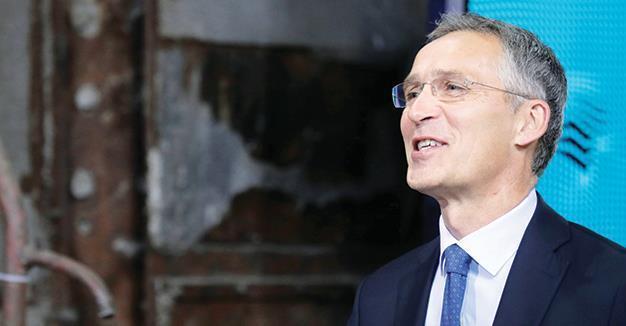NATO’s Stoltenberg says N. Korea’s ‘reckless behavior’ requires global response
LONDON / BERLIN - Reuters
 North Korea’s “reckless behavior” is a global threat and requires a global response, the head of the NATO military alliance said on Sept. 10.
North Korea’s “reckless behavior” is a global threat and requires a global response, the head of the NATO military alliance said on Sept. 10.NATO is not directly involved in the crisis, which saw Pyongyang carry out its sixth and most powerful nuclear test a week ago, but has repeatedly called on North Korea to abandon its nuclear and ballistic missile programs.
“The reckless behavior of North Korea is a global threat and requires a global response and that of course also includes NATO,” NATO head Jens Stoltenberg said in an interview with BBC television.
Stoltenberg declined to say whether the U.S. territory of Guam, threatened by North Korea, was covered by NATO’s Article 5, which says an attack on one member is an attack on all.
“We are now totally focused on how can we contribute to a peaceful solution of the conflict,” he said.
British Defense Minister Michael Fallon also told the BBC military conflict should be avoided at all costs.
German Chancellor Angela Merkel, meanwhile, told a newspaper she would be prepared to become involved in a diplomatic initiative to end the North Korean nuclear and missiles program, and suggested the Iran nuclear talks could be a model.
South Korea on Sept. 9 braced for a possible further missile test by North Korea as it marked its founding anniversary, just days after its sixth and largest nuclear test rattled global financial markets and further escalated tensions in the region.
“If our participation in talks is desired, I will immediately say yes,” Merkel told Frankfurter Allgemeine Sonntagszeitung in an interview to be published on Sept. 10.
She pointed to negotiations that led to a landmark nuclear agreement between Iran and world powers in 2015. Back then, Germany and the five countries on the United Nations Security Council with veto power took part in talks that led to Iran agreeing to curb its nuclear work in return for the lifting of most sanctions.
Merkel said that was “a long but important time of diplomacy” that ultimately had a “good end” last year, referring to when the deal was implemented.
“I could imagine such a format being used to end the North Korea conflict. Europe and especially Germany should be prepared to play a very active part in that,” Merkel added.
She said she thought the only way to deal with North Korea’s nuclear program was to come to a diplomatic solution, adding: “A new arms race starting in the region would not be in anyone’s interests.”
















